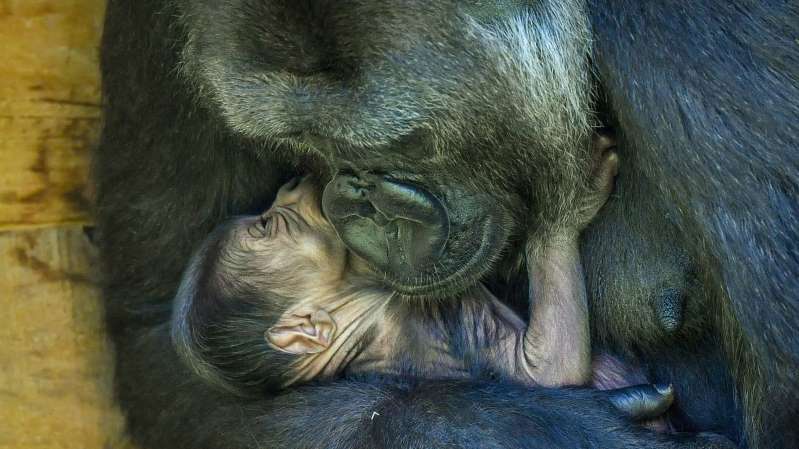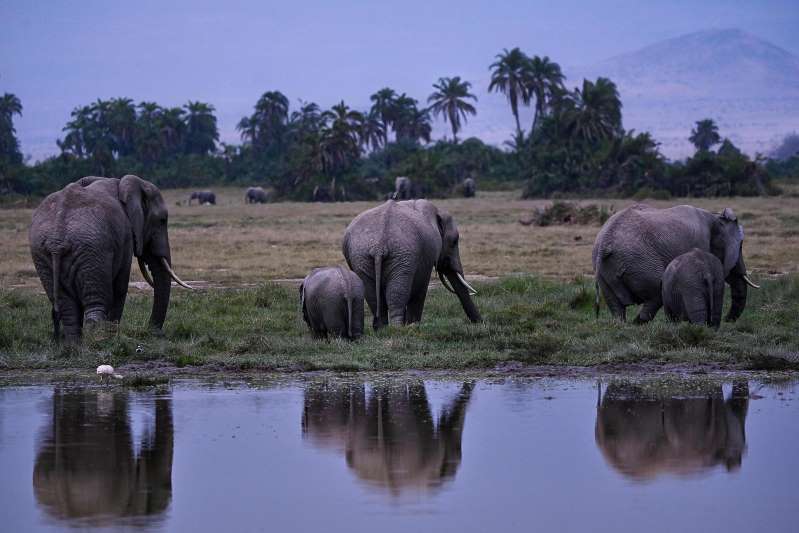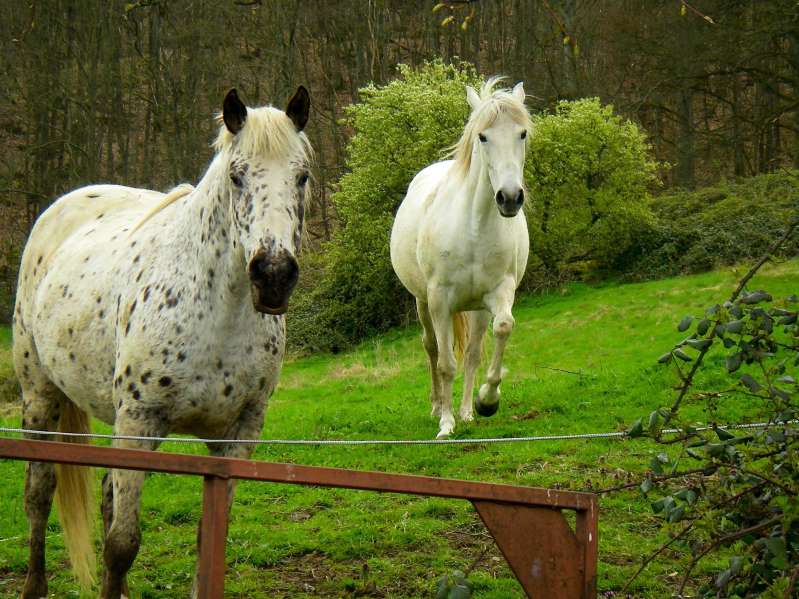Baby gorilla arrives at Bristol Zoo a year after mother lost first born
![]()
![]()
![]()
![]()
![]()
![]()
Baby gorilla arrives at Bristol Zoo a year after mother lost first born
A baby gorilla has been born at Bristol Zoo - a year after its mother, Kala, lost her first born.
The tiny western lowland gorilla arrived in the early hours of Wednesday morning in the zoo's Gorilla House.
Bristol Zoo said in a tweet it was "SO happy" when keepers arrived to find the little gorilla nestling in the arms of its mother Kala.
Mother and baby are "doing well", the zoo said.
Kala, 9, who arrived from Germany in 2018, gave birth naturally with the baby's father, Jock, nearby.

In September last year, Kala lost her first baby after undergoing an emergency caesarean.
Lynsey Bugg, the zoo's curator of mammals, said: "We knew we were having a baby gorilla due and we've been on baby watch fo"On Tuesday Kala looked nice and comfortable and not causing us any concerns or worries.
I came in yesterday morning to find a brand new baby in the house. It was lovely.
"Last year she did have a pregnancy and birth but it didn't go as planned and unfortunately the baby didn't survive.
"We were a bit on tenterhooks this time round and it is so lovely that she was able to give birth naturally and baby and mum are really well.
Ms Bugg said it would take some time before the sex of the baby gorilla is known.
"They are not all that easy to sex and we want to have a few looks before we are certain," she added.
The new addition joins a troop of six gorillas at the zoo, which are part of a breeding programme to help safeguard the future of western lowland gorillas.
The western lowland is the most numerous and widespread of all gorilla subspecies, according to the World Wide Fund for Nature (WWF).
The group estimates their numbers have decreased by more than 60% over the last 20 to 25 years due to poaching and disease.
Reference: Sky News: Russell Hope, news reporter 5 days ago:22nd August 2020
Kenya's elephant population doubles over last three decades






Kenya's elephant population doubles over last three decades
The number of elephants in Kenya has doubled over thirty years, local wildlife campaigners have said.
Elephants are threatened by poaching and the ivory trade, while their habitats have been slashed by half since 1979, according to the World Wildlife Fund.
But the number in Kenya has gone up from about 16,000 in 1989 to nearly 35,000 in 2020, the Kenya Wildlife Service (KWS) said this week.
Tourism minister Najib Balala said that the East African country had "managed to tame poaching" within its borders in recent years.

This has seen our elephant population steadily grow from 16,000 in 1989 to 34,800 by end of 2019 which is more than double the population in the 90s - DG KWS Brig (Rtd) John Waweru #WorldElephantDay pic.twitter.com/4Ed5bzok9w
— KWS (@kwskenya)
August 12, 2020
The number of elephants harmed by poachers has dropped from 80 in 2018 to just seven in the first half of this year.
Majority of people support total ban on UK ivory sales
Speaking at an event for World Elephant Day, Mr Balala added: "Today we are also launching the Magical Kenya elephant naming campaign, an annual festival whose objective will be to collect funds from the naming, to support the rangers' welfare.
"This year alone, about 170 elephant calves have been born."
Despite Kenya's success story, the picture for elephants elsewhere in Africa looks more bleak. There are just 500,000 in the continent, down from about five million in the early 20th century, according to wildlife campaigners Born Free.
The decline in numbers is largely driven by demand for ivory from elephant tusks, activists say.
Kenya has looked to crack down on poachers, setting harsh prison sentences and major fines for anyone caught taking part.
The country's president, Uhuru Kenyatta, even burnt a pile of elephant tusks and rhino horns to make clear the government's attitude to the trade.
Reference: Kit Heren 13 hrs ago: Evening Standard: 14th Augustv 2020
Famous seal hitches rides with paddleboarders off Dorset coast
![]()
![]()
![]()
![]()
![]()
![]()
Famous seal hitches rides with paddleboarders off Dorset coast
A seal that was targeted by children throwing stones has apparently forgiven humans – and taken to hitching rides with people on their paddleboards.
Last month youngsters were spotted trying to hit the animal with stones while their parents took video footage on their phones.
Seals are usually elusive and shy, but this animal, known as Sammy, has been spotted regularly at Weymouth, Dorset, for three months, where he has become a tourist attraction.
Sammy has even been known to approach people, and now has even started hopping on board with beachgoers taking to the sea.

Andy Tolley, an engineer, told the Dorset Echo he saw a seal trying to get onto the beach as children were aiming at it while the parents filmed the scene.
“The kids were only about 10ft away from the seal and they could have been doing some real damage to it at that close range,” he said.
“The seal was trying to get onto the beach and, because of the kids throwing stones, it kept going back into the water, swimming further up and then trying to come in again. Eventually it disappeared as it couldn’t get safely onto the beach.
“I was stuck for words. I couldn’t believe what I was seeing. There were other people on the beach watching them as well and I don’t think they could believe it either.
“I wish I had gone up to them and taken photos of what they were doing so that the pictures could be used to demonstrate what others shouldn’t be doing. I was just gobsmacked.”
A man riding on the back of a boat in the water: Sammy hitches another ride (Getty)© Provided by The Independent Sammy hitches another ride (Getty)
Police and RSPCA officers have been devising plans to protect Sammy, the paper reports.
“All agencies involved will be working together to maintain the safety of the seal and that of the public using the beach where the seal is present,” a spokesman said.
“Please take care when swimming in the area and do not encourage contact with the seal. Please maintain a safe distance at all times to protect yourself and the seal.”
Reference: Independent: Jane Dalton 10 hrs ago: 14th August 2020
Mysterious spate of ‘barbaric’ horse killings and mutilations in French countryside under investigation
![]()
![]()
![]()
![]()
![]()
![]()
Mysterious spate of ‘barbaric’ horse killings and mutilations in French countryside under investigation
French police are investigating an unprecedented spate of horse killings, which have seen a number of animals mutilated across the country.
A recent case in Cortambert, a village in the central-eastern department of Saone-et-Loire, on Friday involved a horse which had its right ear cut off, one of its eyes gouged out and its genitals cut away.
A local official told Reuters that the unexplained attack was “absolutely barbaric”.
There have been about 10 similar cases across France since the start of the year, often occurring in the north of the country, according to a Paris police spokesperson.

The spokesperson said there had also been cases between 2014 and 2016, with similar killings and mutilations reported in Belgium and Germany, but the recent spike in incidents in France was extremely unusual.
Police hunt ‘Kentucky horse killer’ as six more bodies found
“We do not understand the motivation. Is it a satanic rite, insurance fraud, some macabre trophy hunt or an internet challenge? We don’t know. It is very traumatising,” they said.
The attacks have involved different types of horses, as well as one donkey, with mutilation of an ear being a common factor, the spokesperson added.
It was also revealed that no meat had been taken from the carcases of the animals.
On Tuesday, local media reported that the regional Bourgogne-Franche-Comté Horse Council had called on all farmers and residents in areas where horses are kept to be “vigilant” over inappropriate or suspicious behaviour.
“Since the end of 2018, all over France, but also in border countries, very different equines have been the target of barbaric attacks of human origin and have been found dead and mutilated,” the council said in a statement, as reported by Le Bien Public.
It said witnesses should not intervene directly if they see something suspicious for their own safety but should contact police with any evidence which could help to identify the perpetrators.
“It is the mobilisation of the greatest number that will put an end to these despicable acts,” the council added.
Cruelty to animals is punishable in France with up to two years imprisonment and a maximum fine of 30,000 euros.
Reference: Conrad Duncan 1 day ago: 12th August 2020

 How to resolve AdBlock issue?
How to resolve AdBlock issue?